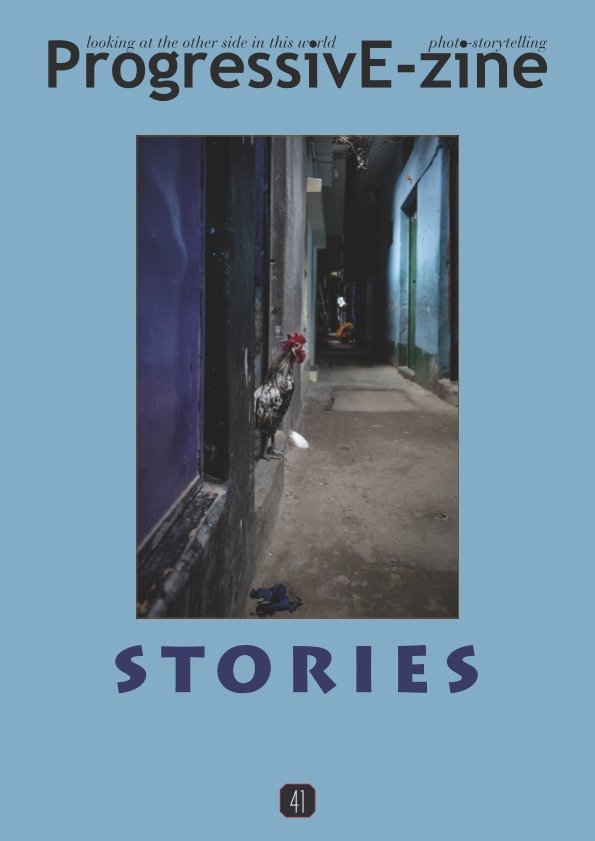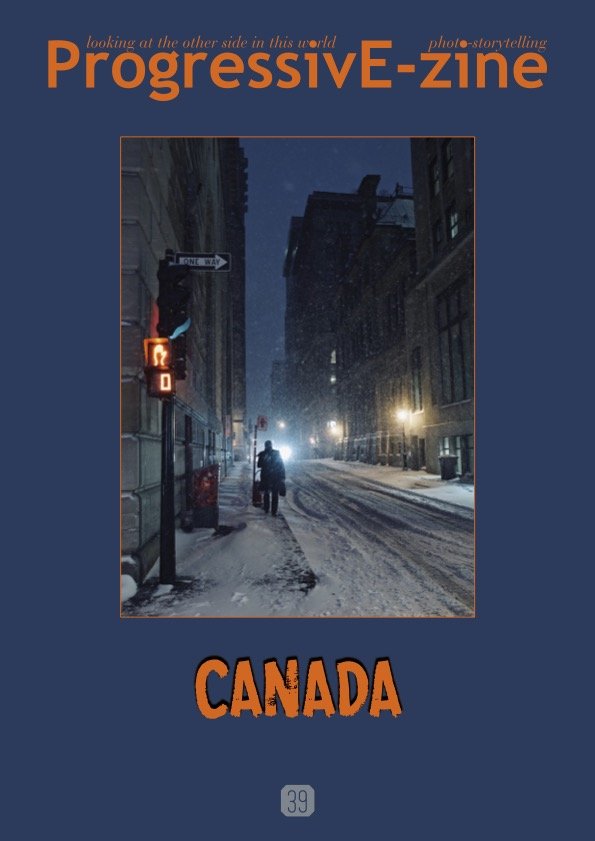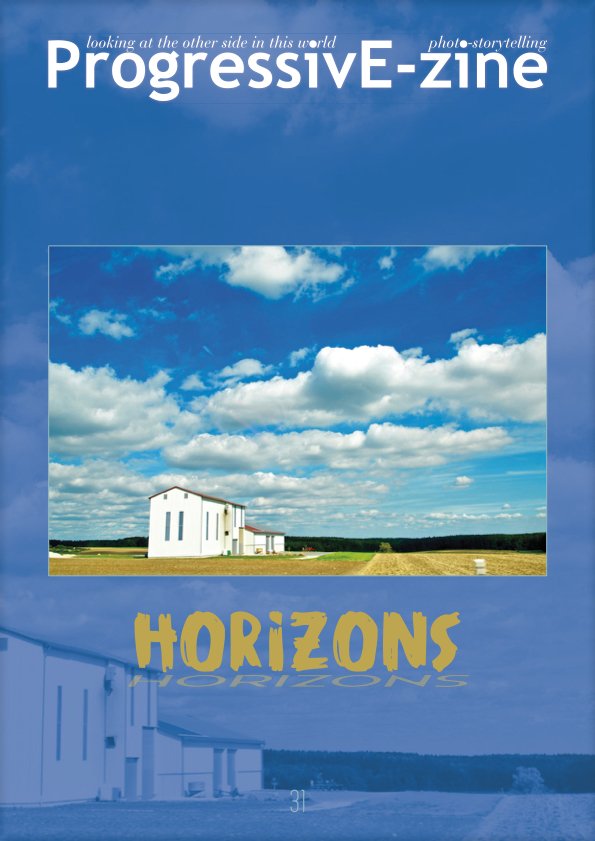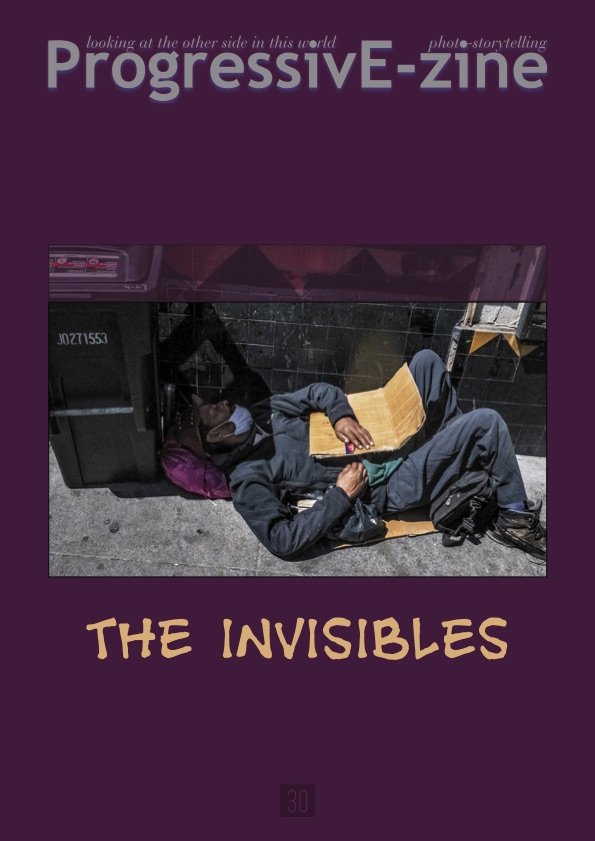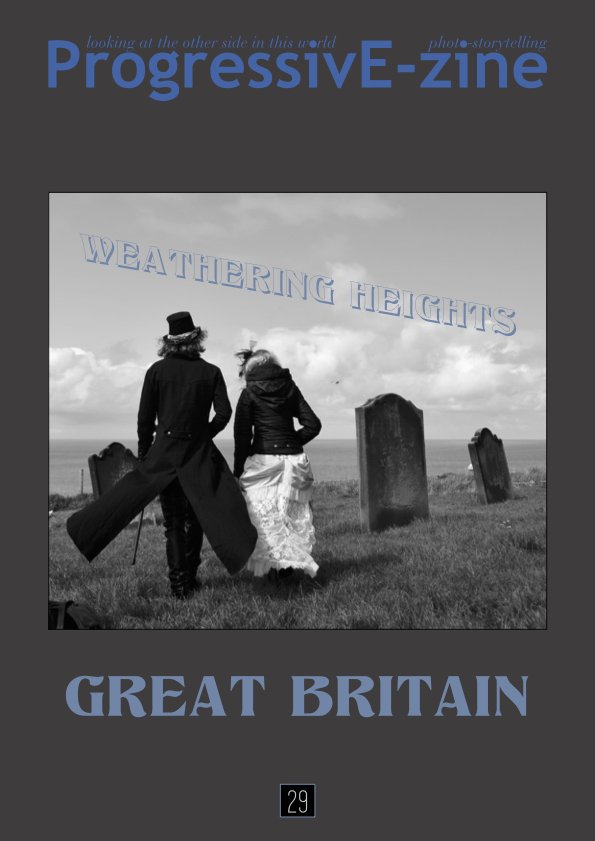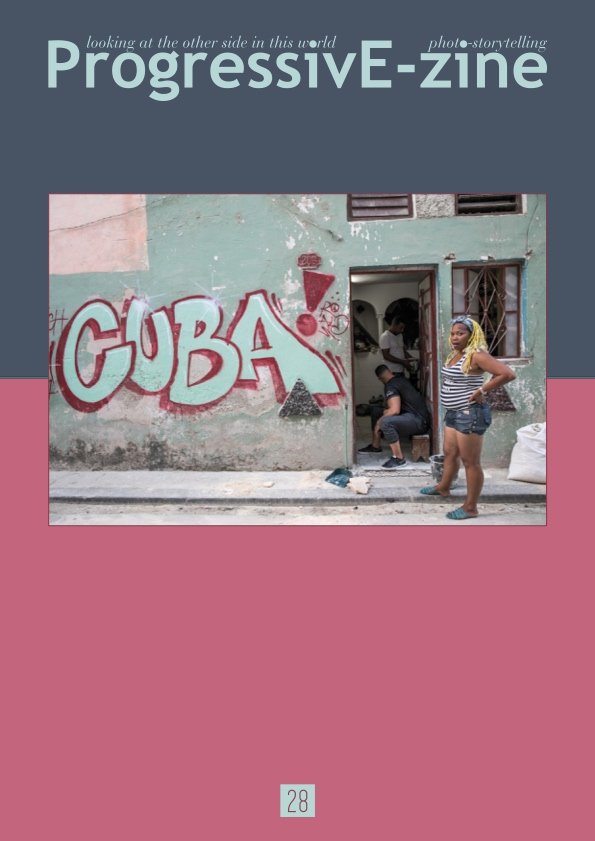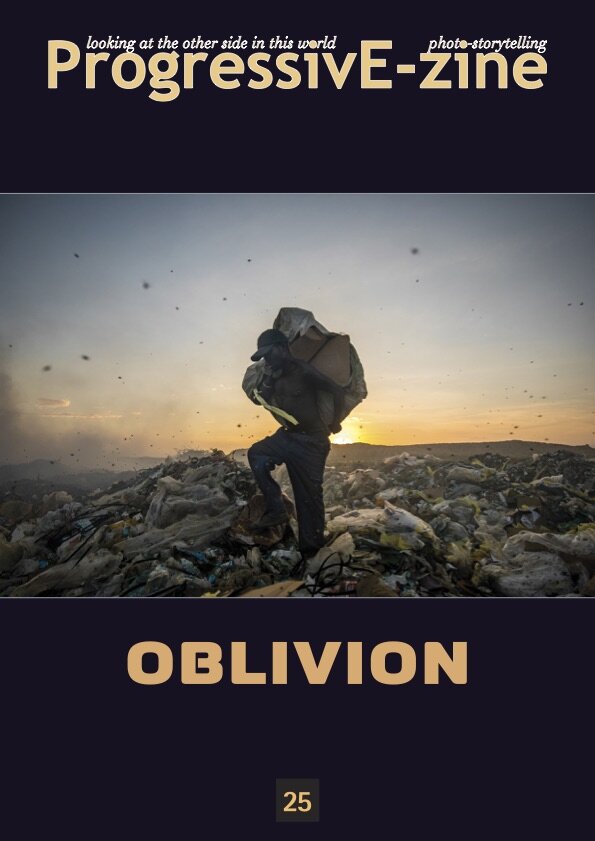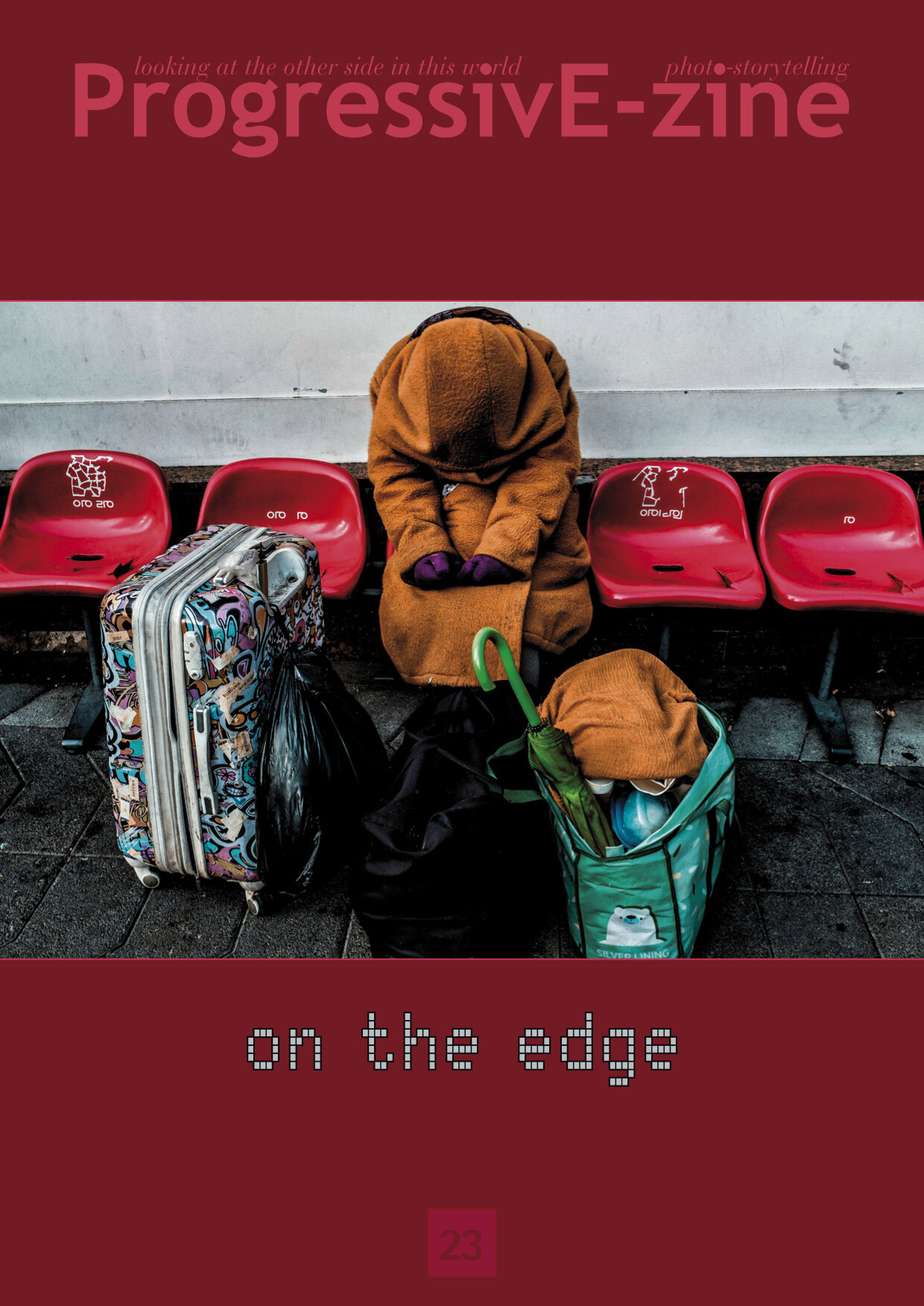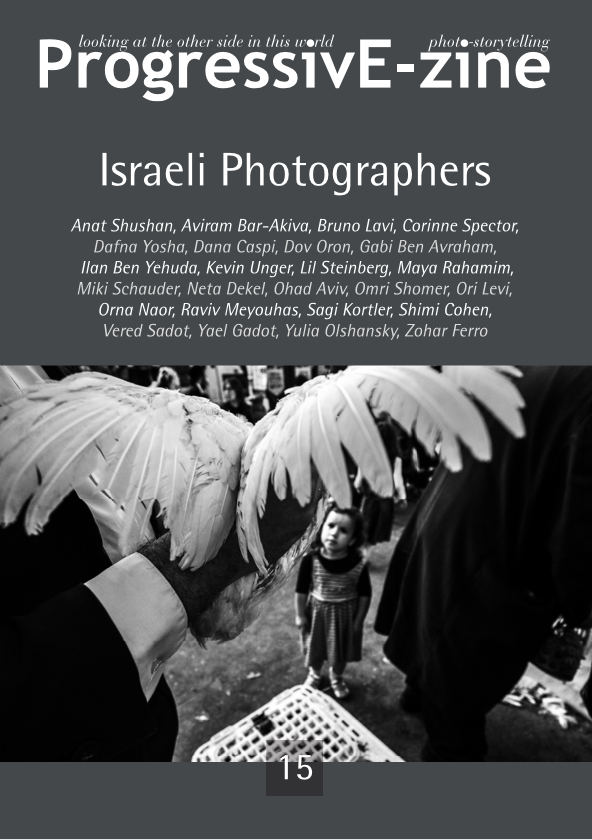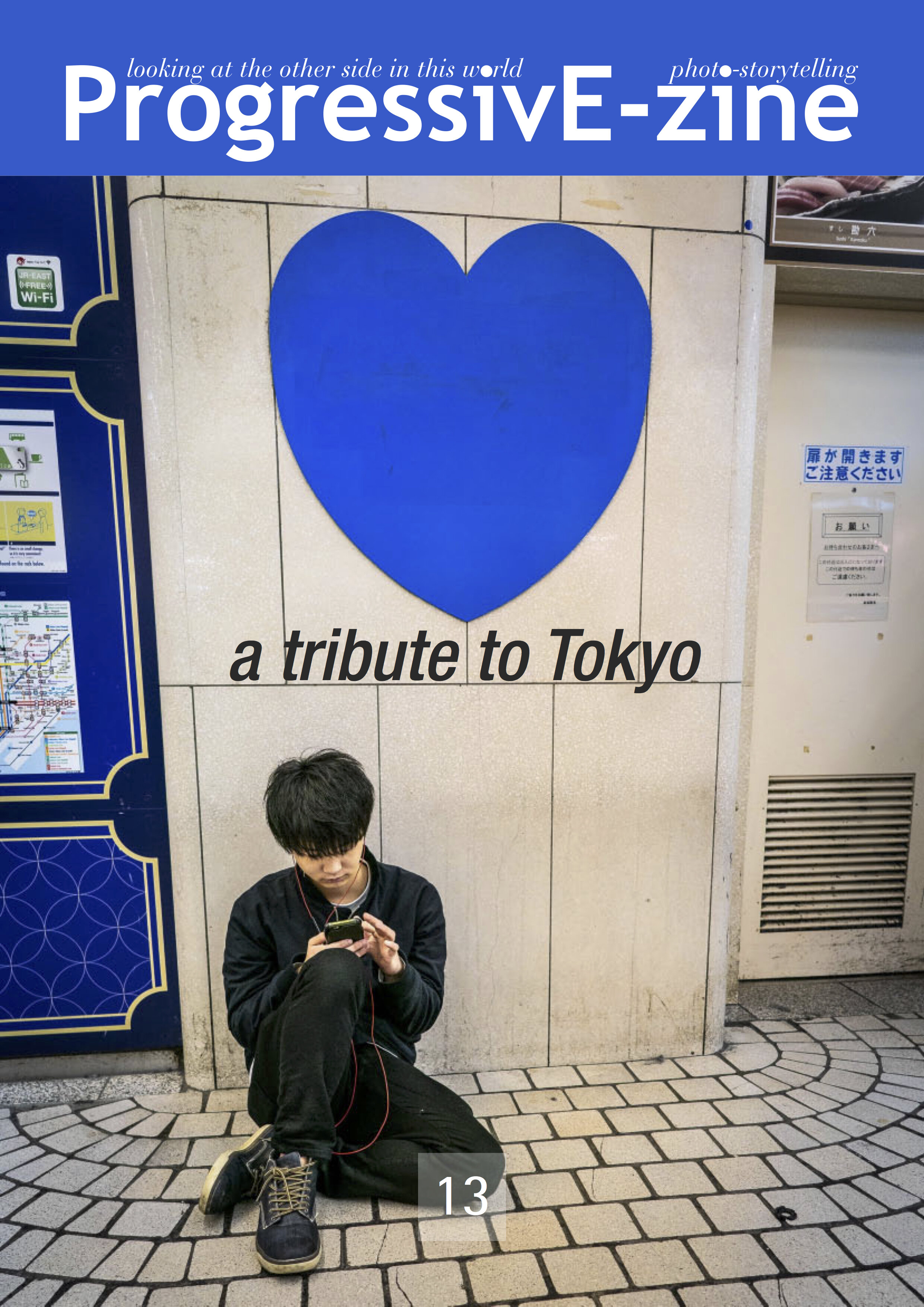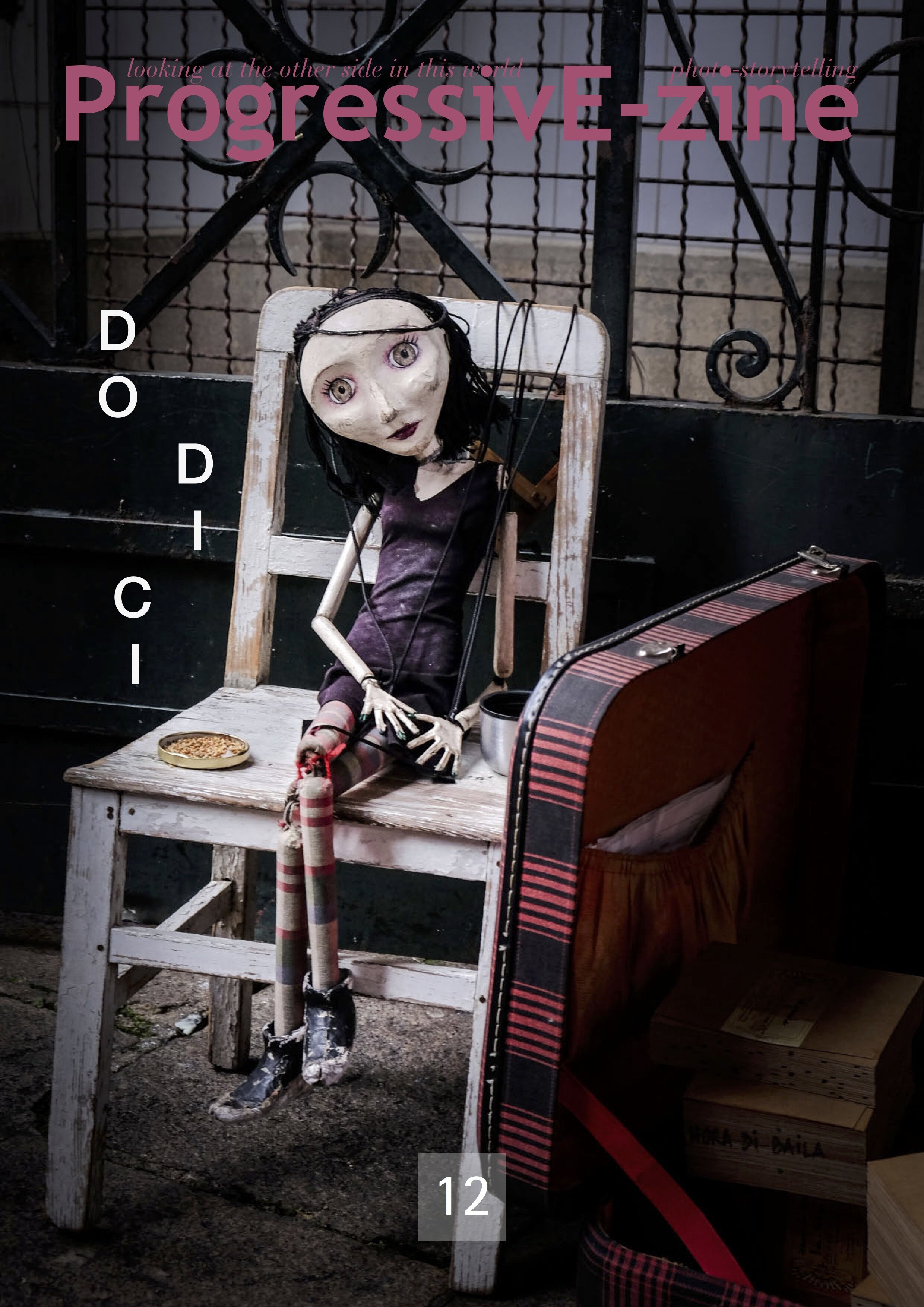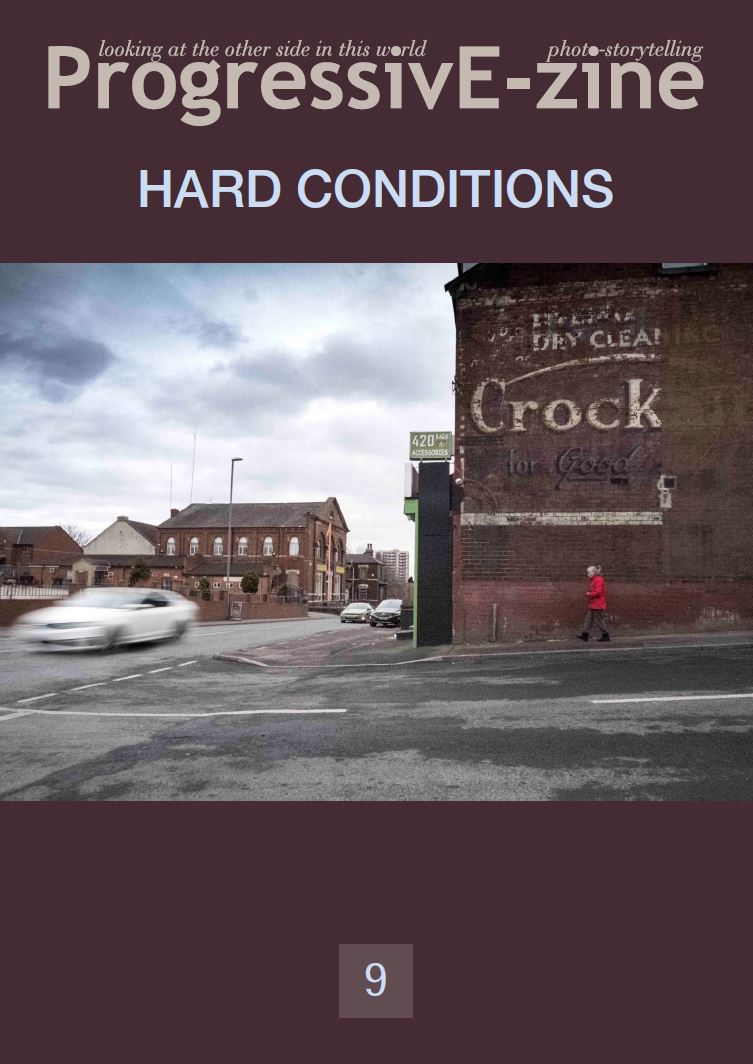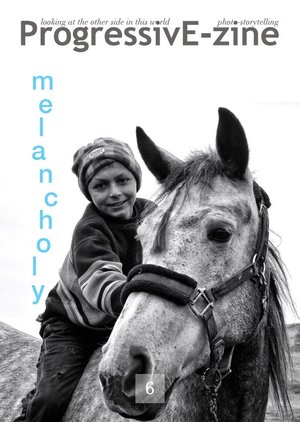Cover by Batsceba Hardy / 60 pages
ProgressivE-zine is a no-profit magazine
We're offering you the opportunity to get the print version from the on-demand printing house Peecho.* Purchase your copy on our website by clicking on the magazine cover. If you prefer a non-printable, high-quality version, you can download it by signing up and making a donation of 5 euros or 40 euros for a year. Your support will help us continue producing magazines.
Horizon is an everyday word. Yet what is a horizon? Aside from being an imaginary line that divides the earth from the sky, that seems to place man in the center of a circle, the primary concept is something that delineates the finite from the infinite. Or something we want to achieve.
Here we're also concerned with a mental horizon. That's why we’ve included a feature on food, a horizon that opens up the unknown in Corinne Spector's story. Not only that, we’ve a story that tells us of a little known country, captured by the eyes of Bruno Lavi, who is always looking for new horizons.
And then there are the new steel and glass buildings that have escaped cities around the world. The horizon becomes an optical illusion. We are in the maze of Batsceba Hardy's fake world. And how different are the landscapes that span the horizons of Keef, Theo and Rene?
These are the horizons of our minds. But what we ultimately see are the pictures ...
“Between two worlds life hovers like a star, twixt night and morn, upon the horizon's verge.” - Lord Byron (1788-1824)
Batsceba Hardy: I don't think I'm essentially a street photographer. I guess Photography is just the way for me to express how I see things. It has something to do with a philosophical approach to reality. I have always had this way of observing reality, dwelling on details, on scenes that tell me something. I am…
Bruno Lavi, I fell in love with photography at the age of 50 and consider it as a great gift for me! Photography for me is a multi-layered journey of material and human environmental discovery. As with every journey, I enter known or unknown areas, sometimes alone sometimes accompanied but always with the dream of discovering something else in the realm of creativity.Most of my work is about people and contact. In general, the humanistic ethos is at the center of my interest where the human been with his attitudes, attributes, activities, or thoughts is always at the center.
Corinne Spector: I was born in 1961 in Morocco, and live in Israel at the age of nine months. I spent my childhood in Jaffa. I was always a storyteller; I am the eldest of six sisters, so I always invented and told them stories. My passion for photography was born a long time ago. It seems I always had a camera but I never really learned to take photos. I always documented my daily life, and that of my family, and with my camera, I wanted to tell stories. The street, from my perspective, is a place where I am a participative observer – and this requires me to listen carefully and watch closely. There is a great deal of attention to detail needed but my focus changes all the time – suddenly something else attracts my attention.
In street photography, the camera is a tool that intensifies our senses with regards to our surroundings. We look at the world from a perspective that can be critical or empathic – in this way, one often chooses to tell one's story.
Theodoros Topalis, my name Is Theodoros Topalis. I was born in 1968, raised and live in Germany as a son of Greek immigrants, but now I am based in Kavala (Greece). My interest in street photography is maybe a result of two things: The urge to walk in the streets of the cities, and the curiosity about humankind. So it was quite inescapable to become a street photographer, one day.With my images I didn’t follow any deeper sense, they are just the way I see the world and express it with my creativity.
Keef Charles, I was born in 1958. As kids whose father was in Royal Air Force, we travelled a lot, home and abroad. He loved to use his camera. For a number of years, I worked for foreign companies, travelling fairly extensively as part of my job. Living and working abroad has made a difference in how I perceive and view things. Looking at life through the lens has always felt special, capturing moments that somehow help anchor me to life. I must admit that I didn’t serious about my photography until I discovered the Street genre in 2016, I didn’t start to feel the significance until I joined the editorial team of Progressive-Street Photography in 2019. I love to capture moments, moods and memories. Both story and keepsake. They are not simple images but slices of life; both mine and protagonists’ within my shots.
Rene Geensen: My name is Rene Geensen. Born January 12, 1964 in Wormerveer, a small village near Amsterdam. Raised in the Poelenburg district in Zaandam, a multicultural society, I come from a creative family with a father who was the singer in a Rock & Roll band. He was also a painter and photographer. My mother created and sold just about anything to do with flowers. I work 36 hours a week as a salesman of building materials. Photography is my passion because I love to set the alarm for 4 o'clock and then drive for an hour to get to Rotterdam and then try to catch the first sunlight or photograph the Zaanse Schans with the mist and the rising sun. Feel the thrill of what I see. I always try to play with light. It is street and landscape photography that gives me the most satisfaction.
Back cover by Rene Geensen

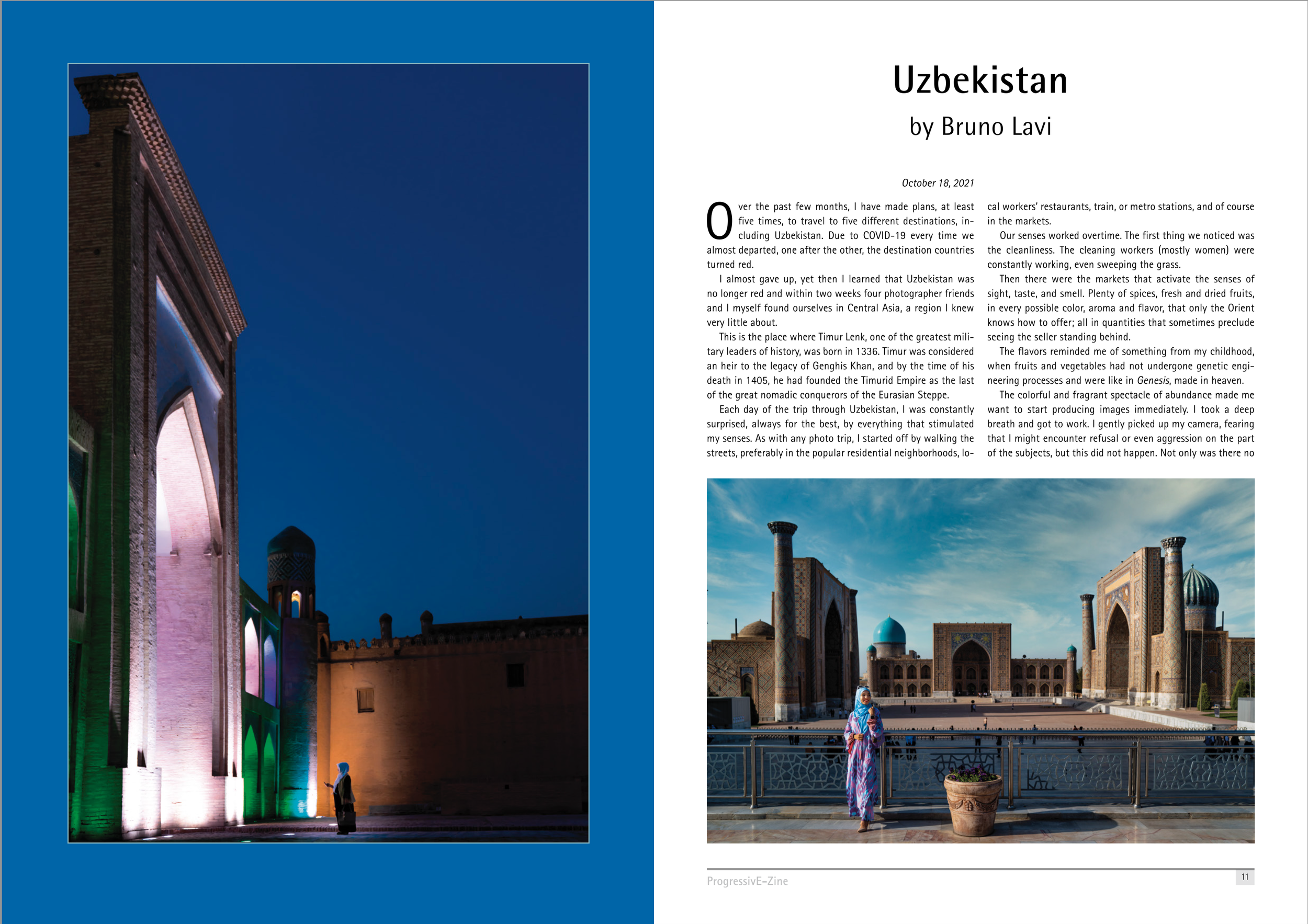
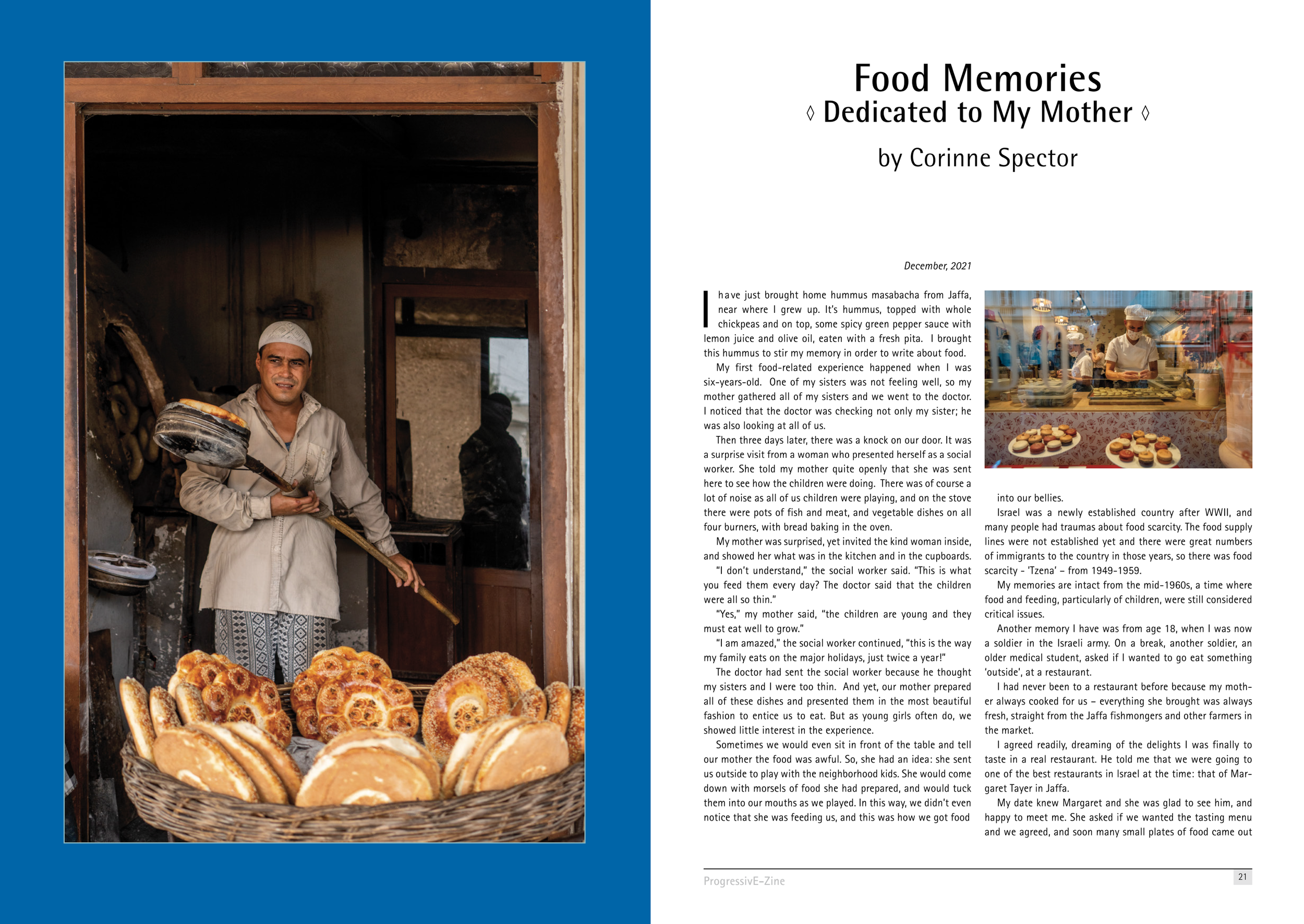



Access to the complete issue is exclusive to donating subscribers
We need your help to continue our non-profit work and PPH's production of magazines and books. With a small contribution fee, you can help us! Make a donation with PayPal or by card. It is possible to subscribe to a monthly donation, and your magazine issues will be delivered directly to you via email or FB messenger.
(Set as a monthly donation)
Many thanks!
Why subscribe?
It is simple: because ProgressivE-Zine will not be the usual street photography magazine.













